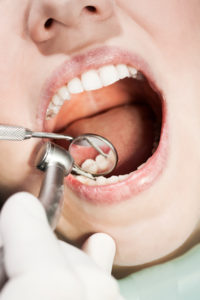Your mouth, especially your gums, can say a lot about your general state of health. During a comprehensive exam, your dentist will be clued in to potential health concerns if your gums look red and swollen or overly pale. If your gums aren’t pink and firm, it could be a sign of a larger health concern that needs to be addressed by a medical doctor or specialist.
Diabetes
If you have diabetes and don’t control your blood sugar, you’re at increased risk of developing gum disease. And once you have gum disease, it can be quite difficult to keep your blood sugar under control. So first, keep your blood sugar close to normal to protect your gums. Then, be sure to brush after each meal, floss and use an antiseptic mouthwash every day. Make sure you see your dentist two times per year and more often if he or she thinks it’s necessary.
Heart Disease
Studies indicate that people with gum disease are at increased risk of heart disease and strokes. Scientists don’t yet know why this occurs, but you should take good care of your gums so your cardiovascular system stays healthy, too.
Anemia
If your gums are sore and pale, it’s a sign that you could be anemic. That means your body doesn’t have enough red blood cells or there isn’t enough hemoglobin in your red blood cells. As a result, your body doesn’t get enough oxygen. Treatment varies based on the cause and specific type of anemia you have. A primary care doctor can recommend the right treatment plan.
Rheumatoid Arthritis
Have rheumatoid arthritis? Then you’re eight times more likely have gum disease. Inflammation is a common factor between both gum disease and rheumatoid arthritis. And if you have RA, you may find it difficult to brush and floss your teeth properly since your finger joints can be impacted by the autoimmune disease. But by treating gum inflammation and infection, you can reduce joint pain and inflammation as well.
Pregnancy
Pregnancy and gum disease don’t mix. Several studies have indicated that mothers who have gum disease before becoming pregnant are more likely to deliver a pre-term baby. That means the baby is born too small, too early and may suffer a lifetime of health-related conditions. The exact reason for the correlation isn’t completely understood, but doctors think underlying inflammation or infections is to blame.
Women who are pregnant may also experience gum inflammation during the pregnancy. However, this condition isn’t the same true gum disease that needs to be treated as soon as possible. Pregnancy induced gum inflammation doesn’t threaten the baby’s health and will usually go away shortly after delivery. Learn more about dental health and pregnancy in our FAQs section.
Maintaining your medical conditions and practicing good oral hygiene will keep your gums healthy. Brush at least twice a day, floss at least once a day and use an antiseptic rinse once or twice a day. Be sure to see both your dentist and medical doctors for regular exams.


